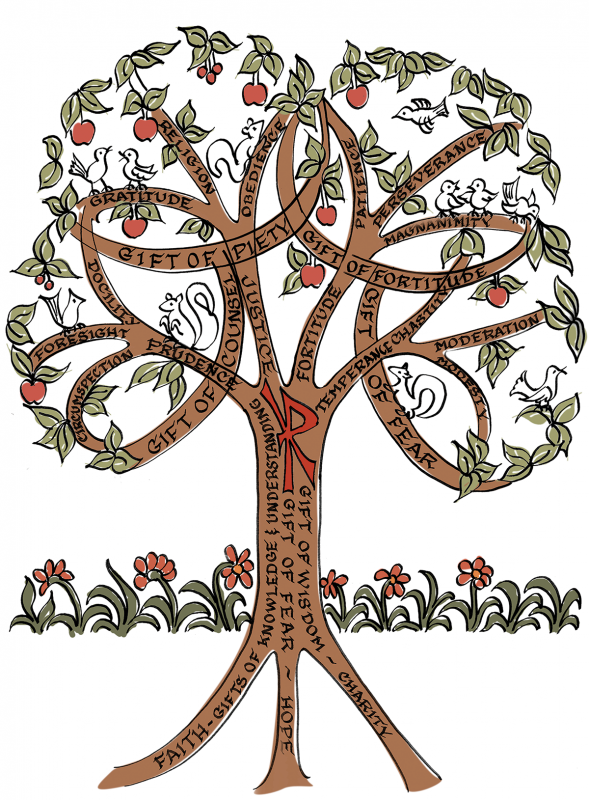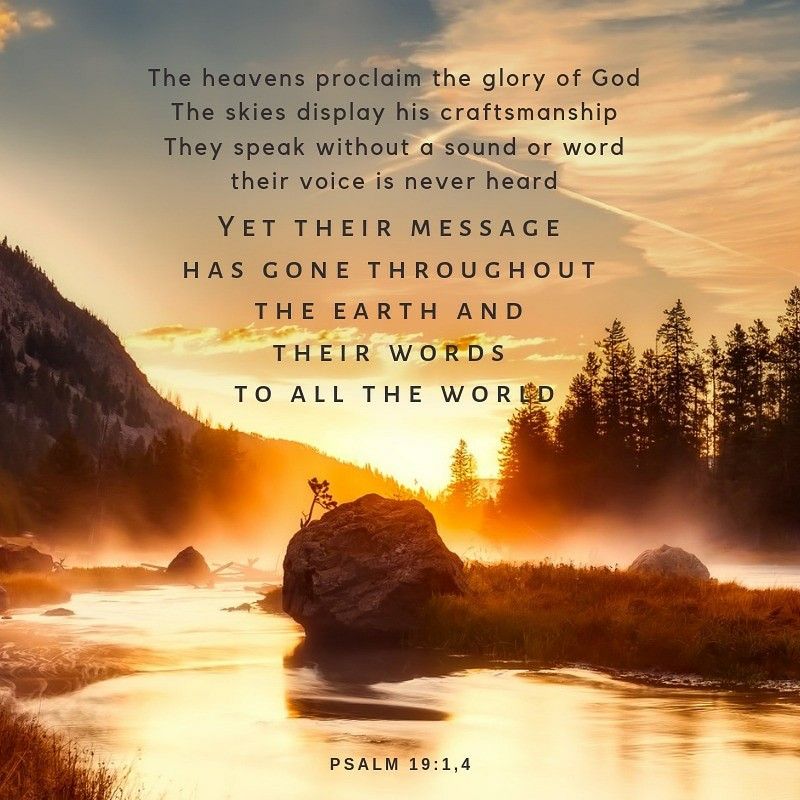The Pursuit of Virtue in Christ
Among Christ’s hypostatic properties (divine and human) is the truth of his unchanging nature. The Psalmist proclaims “But You remain the same and your years will never end” (Ps. 102:27). Every word Christ speaks is eternal and his promises are everlasting” (Mt. 24:35). What great comfort we have in knowing that our circumstances will never determine the measure of God’s infinite goodness and mercy. Only God’s love is the measure of our worth (JP11). While the unpredictable world promises constant change, God’s love endures forever. Out of his grace flows into the soul infused virtues (faith, hope and charity) and the moral virtues (prudence, justice, fortitude and temperance) as the sanctifying means to participate in his divinity.
These seeds of virtue incline the soul towards holiness, perpetually raising the heart to God. As spiritual gifts, they bring forth a profound desire to “be perfect as our heavenly Father in heaven is perfect” (Mt. 5:48).
However in our world today, the pursuit of virtue has taken on a whole new meaning. The virtuous path is often used in a sarcastic, cynical way by those who have no regard for virtue themselves and criticize it in others. The meaning of “virtue” has been craftily redefined as qualities deemed admirable or acceptable by the standards of the modern day culture.
Only in Christ can this shade of misguided direction be lifted to understand true flourishing within the human person. Those with fixed eyes on Him find the path that leads to joy.
The ways of the world only bring the promise of never finding that joy.
Understanding the Theological Virtues
 Virtues are stable dispositions of the intellect and the will that govern our acts, order our passions, and guide our conduct in accordance with reason and faith (CCC 1834). According to the Rule of St. Benedict, they are the means whereby the Christian is transformed into an active image of God. For God said, “Let Us make man in Our (Holy Trinity) image, after Our likeness, to rule over all the earth itself and every creature that crawls upon it” (Gen 1:27). God created mankind as an Incarnate essence to reflect his own divine nature. Both male and female are inextricably joined together, two halves forming the whole totality of his perfection.
Virtues are stable dispositions of the intellect and the will that govern our acts, order our passions, and guide our conduct in accordance with reason and faith (CCC 1834). According to the Rule of St. Benedict, they are the means whereby the Christian is transformed into an active image of God. For God said, “Let Us make man in Our (Holy Trinity) image, after Our likeness, to rule over all the earth itself and every creature that crawls upon it” (Gen 1:27). God created mankind as an Incarnate essence to reflect his own divine nature. Both male and female are inextricably joined together, two halves forming the whole totality of his perfection.
As the imago Dei, we are intellectual beings able to reason with the freedom to do all we were designed by the Creator to do. And as contingent beings, we are sustained only by God’s grace and life giving breath. God did not create mankind in his image without providing the means to become holy reflections of Himself. Through baptismal grace, God infuses the supernatural virtues of faith, hope and charity to dwell in the soul, asking nothing in return.
The infused virtues go beyond natural human traits and cannot exist apart from God. Like a tree, faith is the root; and charity is the sap that nourishes the trunk. The branches are the network of virtues to produce fruits of good work. They bring about a quality of mind by which one seeks to live righteously before God.
Yet, those in pursuit of the virtue-driven life find the world pushing them toward a way of life absent of God. Christ’s Word runs counter to the secular pursuit of virtue. Today, the subtle and relentless obsession with self, passivity and defeatism have led people to see themselves as victims of life and of what Shakespeare called “the slings and arrows of outrageous fortune.” What the human person should fear most is separation from God.
For it was in this moment that Christ cries out the words “Eli, Eli, lema sabachthani” that is My God, My God why have you forsaken me? (Mt. 27). One can only contemplate if the Lamb of God cried at the sorrow of Adam and Eve’s sin and final separation from God. Offering Himself on the Cross, that perfect communion was restored.
The Forgotten Virtue – Hope
 In an article titled “Hope: The forgotten virtue of our time,” Paul Wadell outlines the causes he believes have led to the secular world’s abandonment of hope. He states “We live in an era of diminished hope because it is tempting to replace the theological virtue of hope with flimsy substitutes that cannot possibly give us what our souls ultimately need.” Setting his passion for hope aflame was its intentional omission from a four day conference on faith and the theological virtues.
In an article titled “Hope: The forgotten virtue of our time,” Paul Wadell outlines the causes he believes have led to the secular world’s abandonment of hope. He states “We live in an era of diminished hope because it is tempting to replace the theological virtue of hope with flimsy substitutes that cannot possibly give us what our souls ultimately need.” Setting his passion for hope aflame was its intentional omission from a four day conference on faith and the theological virtues.
Hope was on no one’s agenda.
Political leaders center people on a fulcrum of division rather than unity. To divide is far easier than it is to inspire hearts and minds. According to Wadell, “hope erodes when we no longer aspire to something blessed and promising – to sustain us in the life that God wants for us. Hope disappears when we lose sight of who we are and why we were created. We are pilgrims making our way back to God. And, we are helping others to do so as well.”
The world would have us believe that the kind of faith and hope St Joan of Arc brought to the people of France is pure mythology. At the root of this lie are the secularists championing only what science, technology and the human intellect can offer. For instance, when the pandemic level began to subside in the city of New York, its Governor stated “Faith did not do this – God did not do this…” to snuff out the hope rising to heaven with gratitude.
Yet, for the Beatitude’s “Blessed are they who…” sustained in the hope of Christ – belief in all eight promises sets the heart on the glory of heaven. In “Saved in Hope,” Pope Benedict XVI wrote of the Christian, “The one who has hope lives differently; the one who hopes in Christ has been granted the gift of a new life.”
The Design of the Human Person in Christ
Considering the secular world’s approach to virtue, it is not difficult to see its vast departure from the source of its origin – God. They have transformed its meaning and promised rewards that come from within the self-help movement to improve well-being and the world at large. Human flourishing is made possible only when its destination is the glory of God, not joy anchored in humanity’s capacity to cultivate virtues applauded by society as is the case in our world today.
Saint John Paul II stated that “It is through Christ that the human person discovers “the greatness, dignity and value that belong to his humanity.” And as the imago Dei, humanity will not find the path to human flourishing unless a spirit of faith is put into practice in daily life. Thus, to understand the supernatural nature of the human person and the spiritual tools of virtue, we must understand ourselves in the light of the Holy Trinity.
Ultimately, the human person can either look for the light of Christ that leads to true joy or latch on to something temporal within the world. The Psalmist writes “the heavens declare the glory of God, and the sky above declares his handiwork” (Ps. 19). As God has created a world that displays his sovereignty, we are left without excuse to search for Him ad infinitum – until the end of time.


